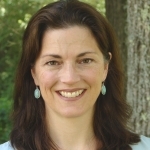 (Host) January is National Mentoring Month; and writer, journalist and commentator Marybeth Redmond is thinking about the mentoring relationship in a new way.
(Host) January is National Mentoring Month; and writer, journalist and commentator Marybeth Redmond is thinking about the mentoring relationship in a new way.
(Redmond) I became a formal mentor about seven years ago. I asked to mentor the Somali Bantu girl who had stayed at my Essex home with her family after she came to Vermont from a Kenyan refugee camp. All nine of her years were lived in that camp.
I remember teaching her to pump a swing and eat a cheeseburger, to count American money and bag groceries at the store. I affectionately recall her questions about Hannah Montana; she wanted to know if the singer was an actual person or a made-up character on TV. I watched in both horror and amusement as my young African friend put on a Hannah wig at one of the nearby box-stores. She giggled and swung her head from left to right; the stringy blond tresses undulated around her face.
On another outing, I brought my mentee to a store known for its fine-baked treats. But instead of a sugar-dusted pastry she chose the ripe avocado on the top of the counter. Outside, under a leafy maple in summer, my mentee scooped out the pale green flesh with a spoon as if she were savoring a creemie. “I have dreamed of eating an avocado,” this now 11-year-old said, “we couldn’t get them in the camp.”
The Greek word “mentor” means “wise adviser.” Mentor was an actual character in Homer’s poem the Odyssey; he was given the task of counseling Odysseus’ son. As in this epic story, the mentoring relationship is often portrayed as a competent, somewhat enlightened elder supporting a younger, struggling person. That was my definition of the mentor-mentee relationship until my lived-experience expanded my perspective.
My young friend and I did go back and buy that Hannah wig — when she was 13. For Halloween, she insisted. As we ‘trick or treated’ around my neighborhood with her friends and siblings, their mentors, and all of our kids mixed in — I smiled inwardly. Who was really enriching whom?
Our next mentor-activity together would include the premiere of Enchanted, a Disney movie I was actually anticipating. My mentee’s pre-teen film selections were exposing me to story lines you just don’t encounter without a daughter. I had come to understand this mentoring relationship as reciprocal, mutually beneficial, with growth and blessing flowing in many directions.
My young friend is now a flourishing junior in high school. Our formal mentoring relationship concluded about three years ago, although I’m still in contact.
Now, I informally mentor the incarcerated women I “write-inside” with each week. Their insights about the stranglehold of addiction have informed me deeply; their raw, unvarnished personalities have smoothed the sharpest places in me and have made me a more real person. The ripple effects of mentor relationships provide incalculable value to our communities.